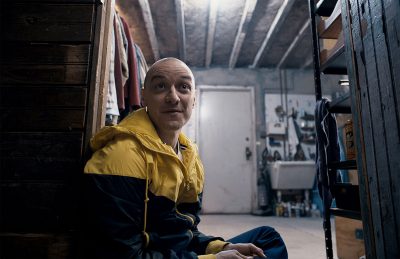
The name M. Night Shyamalan can evoke a multitude of different responses depending on whom you ask. Awful. Disappointing. Hack. Misunderstood. The list goes on. The director of “Split” exploded into mainstream consciousness back in 1999 with the critical and commercial success “The Sixth Sense.”
Follow-up films like “Unbreakable” and “Signs” were also well-received, leading to many calling him the next Spielberg. Then it all fell apart. His next few films garnered mixed reviews until, eventually, he made some truly awful films like “The Last Airbender” and “After Earth.”
Audiences should not worry, however, because “Split” is truly a return to form. A smaller budget means a smaller scale, and this is where Shyamalan works best. With a much tighter creative environment, Shyamalan focuses more on creating a tight and compelling narrative.
No stranger to the thriller/horror genre, his script takes a standard kidnapping story and puts a twist on it. What if the kidnapper had multiple personalities? The antagonist has dissociative identity disorder, previously known as multiple personality disorder. While the stigmatization of this legitimate mental illness is problematic, the film uses it to make such a compelling character that it’s harder for the viewers to get mad at the stigmatization.
The kidnapper is actually named Kevin Wendell Crumb (James McAvoy), but for the majority of the film, McAvoy spends his time switching between 24 different personalities. His performance in this film is by and large the film’s greatest achievement.
McAvoy switches between characters seamlessly while making them all feel very different from one another, even though they all occupy the same body. Mannerisms, physicality and tone of voice are so radically different from one another that it’s hard to believe they are all coming from the same actor.
While McAvoy steals the show, Anya Taylor-Joy’s character, Casey Cooke, holds her weight in the scenes they share. She expertly captures the downtrodden life of her character. Many elements of her performance in last year’s “The Witch” are here, too, which is a good thing.
Her backstory plays a crucial role in the film’s climactic moments, especially as it is revealed through a series of flashbacks sprinkled throughout the film. While they do break the narrative’s pacing quite a bit, the backstories add such a richness to her character that the sacrifice is worthwhile.
Unfortunately, the same richness doesn’t apply to some other characters in the film. Marcia and Claire, two other girls who were kidnapped, primarily serve as a point of contrast for Casey’s character. They are very shallow characters, but at least they are not offensive or irrational.
Betty Buckley plays Dr. Karen Fletcher, Kevin’s psychiatrist. While her character isn’t very well fleshed out, Buckley’s performance, especially when acting against McAvoy, is extremely interesting and makes her inclusion in the story very welcome.
Her character has a small subplot involving researching DID and proving to the world that personality shifts allow for some superhuman abilities. This never really goes anywhere though, except for perhaps the very end of the film. But even then, it could still have been removed without much else needing to be adjusted.
For a film that feels somewhat realistic, it begins to lean heavily on the fiction side of science-fiction. It does make the film appear to be ridiculous at some points, but by the end, Shyamalan establishes a clear reason as to why things are the way they are. And to be fair, the film does an excellent job of creating the lore surrounding Kevin’s “abilities.”
While the film’s story up to this point has been solid and entertaining, the ending does leave something to be desired. A big part of Casey’s story is left unresolved. There is perhaps the slightest hint at a resolution, but it is absolutely not definitive. The audience is also definitely left on a cliffhanger, which feels out of place until the very next scene.
The film ends on a note that completely subverts the entire film. It is nothing short of a genius move. Nothing about the plot itself really changes, but rather it’s the implication and importance of the film’s story that changes dramatically. While it will leave most audience members confused, it is incredibly exciting for those who do understand what is happening and what it means going forward.
With “Split,” M. Night Shyamalan has redeemed himself. Not only in the eyes of the mainstream public but for film buffs who know that what’s to come is perhaps more exciting than the film they just watched. The Shyamalan Renaissance, or “Shyamalanaissance,” is real. And it is here.




